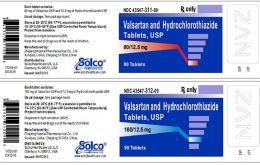MercoPress. South Atlantic News Agency
Tag: International Agency for Research on Cancer (IARC)
-
Saturday, August 10th 2019 - 06:48 UTC
US eliminates cancer warning labels from the controversial glyphosate weed killer

US Environmental Protection Agency has said it will no longer approve warning labels that claim the controversial herbicide glyphosate causes cancer, calling the statement “false and misleading.”
-
Thursday, September 13th 2018 - 10:29 UTC
Cancer burden rises to 18.1 million new cases and 9.6 million cancer deaths in 2018

The International Agency for Research on Cancer (IARC) released on Wednesday the latest estimates on the global burden of cancer. The GLOBOCAN 2018 database, accessible online as part of the IARC Global Cancer Observatory, provides estimates of incidence and mortality in 185 countries for 36 types of cancer and for all cancer sites combined. An analysis of these results, published today in CA: A Cancer Journal for Clinicians, highlights the large geographical diversity in cancer occurrence and the variations in the magnitude and profile of the disease between and within world regions.
-
Saturday, July 21st 2018 - 07:36 UTC
US Food and Drug administration announces recall of several drugs containing Valsartan

The United States Food and Drug Administration said that Prinston Pharmaceutical Inc. dba Solco Healthcare LLC. is recalling all lots of Valsartan Tablets, 40 mg, 80mg, 160mg, and 320mg; and Valsartan-Hydrochlorothiazide Tablets, 80mg/12.5mg, 160mg/12.5mg, 160mg/25mg, 320mg/12.5mg, and 320mg/25mg to the retail level.
-
Thursday, May 17th 2018 - 08:13 UTC
New evidence from genetic data links obesity with increased risk of smoking

A study by the International Agency for Research on Cancer (IARC) provides new evidence that increased weight and obesity may result in increased smoking. The study, published in the British Medical Journal (BMJ) and funded by Cancer Research UK (CRUK), found that increased body mass index (BMI), body fat percentage, and waist circumference were associated both with a higher risk of being a smoker and with greater smoking intensity, measured by the number of cigarettes smoked per day. These results were consistent in both men and women.
-
Sunday, June 19th 2016 - 10:08 UTC
Mate and coffee fine to drink as long as they are not hot beverages, says WHO cancer agency

An international Working Group of 23 scientists convened by the International Agency for Research on Cancer (IARC), the cancer agency of the World Health Organization (WHO), has evaluated the carcinogenicity of drinking coffee, mate, and very hot beverages.
-
Saturday, January 30th 2016 - 12:35 UTC
Glyhphosate court battle in California could turn into lead case

Monsanto stepped up its defense of a widely used weed killer by filing a lawsuit in California seeking to prevent glyphosate, the main ingredient in its Roundup herbicide, from being added to the state’s list of known carcinogens.
-
Friday, October 30th 2015 - 08:03 UTC
WHO clarification: moderate consumption of meat, particularly preserved meat

The World Health Organization, WHO, has received a number of queries, expressions of concern and requests for clarification following the publication of a report from the International Agency for Research on Cancer (IARC) relating to processed meat and colorectal cancer.
-
Tuesday, October 27th 2015 - 09:39 UTC
Processed meats can cause colorectal cancer in humans, says WHO

Eating processed meats like hot dogs, sausages and bacon can cause colorectal cancer in humans, and red meat is also a likely cause of the disease, World Health Organization (WHO) experts said.
-
Wednesday, January 14th 2015 - 07:01 UTC
Cancer 'bad luck' theory strongly questioned by WHO specialized agency

The International Agency for Research on Cancer (IARC), the World Health Organization’s specialized cancer agency, strongly disagrees with the conclusion of a scientific report on the causes of human cancer published in the journal Science on 2 January 2015 by D. Christian Tomasetti and Dr. Bert Vogelstein.
-
Wednesday, February 5th 2014 - 08:47 UTC
WHO: Cancer growing at 'an alarming pace', particularly in developing countries

The WHO’s International Agency for Research on Cancer (IARC) said cancer was growing “at an alarming pace” worldwide and new strategies were needed to curb the sometimes fatal and often costly disease.
